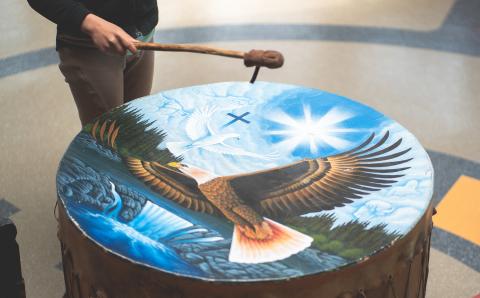Is Earth sacred? While we might have an obligation to be stewards of creation, is there a danger for Christians of falling into nature worship?
Two impulses are at work in these questions—one to be lauded, the other resisted. The first impulse is that only God is worthy of worship, and so no rivals to that honor may be tolerated. That is a firm principle within the Christian faith. If some notion seems to infringe on God’s exclusive claim to our worship, we should be vigilant and make sure no idol is being improperly enthroned.
The second impulse, however, is more problematic: lumping all who speak reverentially of Earth or nature or creation as “nature worshipers.” Yes, there are those who think of Earth as divine. There are others who speak of nature or creation as sacred because of its association with the Divine or who consider that they have sacred obligations to care for the earth because God is its Creator and Sustainer. This notion of “sacred obligation to” is a powerful one. It makes harm or mistreatment of Earth and its creatures a form of sacrilege.
One of the most profound statements of this comes from the poet Wendell Berry, a Christian who once wrote, “There are no unsacred places; there are only sacred places and desecrated places.” For each of us, as we live out our lives in our various places on Earth, a stewardly question to keep before us is whether our actions are honoring the sacredness of a place or (heaven forbid!) desecrating it.
Perhaps some readers will wonder at or even be troubled by the fact that the word “Earth” was capitalized in this column. Isn’t this a sign of the very issue raised in the opening question—a personifying and possible deifying of Earth? The answer is simple. It is granting to our own planet the same level of respect that we give to all the other planets in the solar system.
About the Author
Rolf Bouma is an ordained pastor in the Christian Reformed Church who teaches religion, ethics, and ecology in the Program in the Environment at the University of Michigan.







